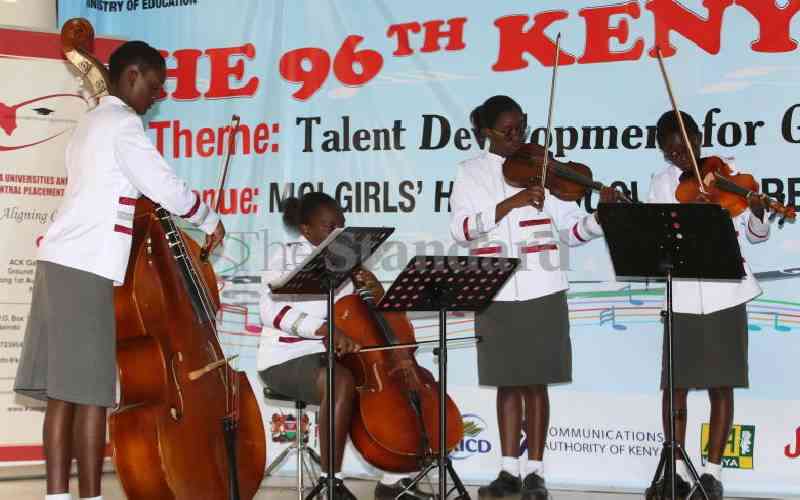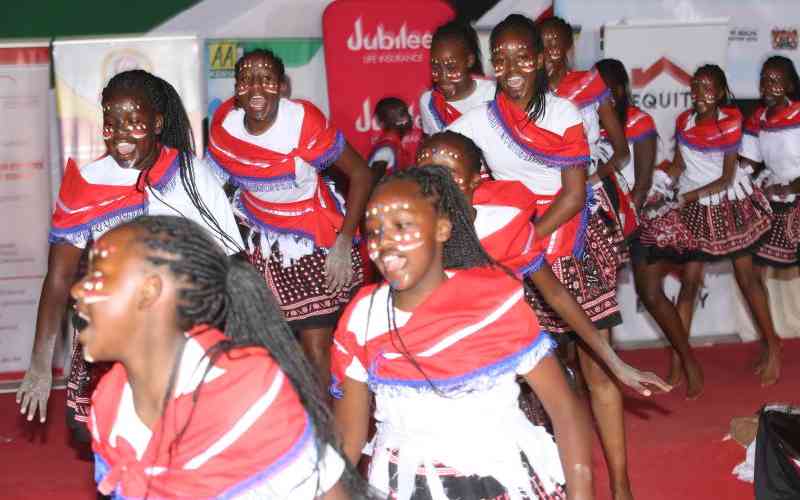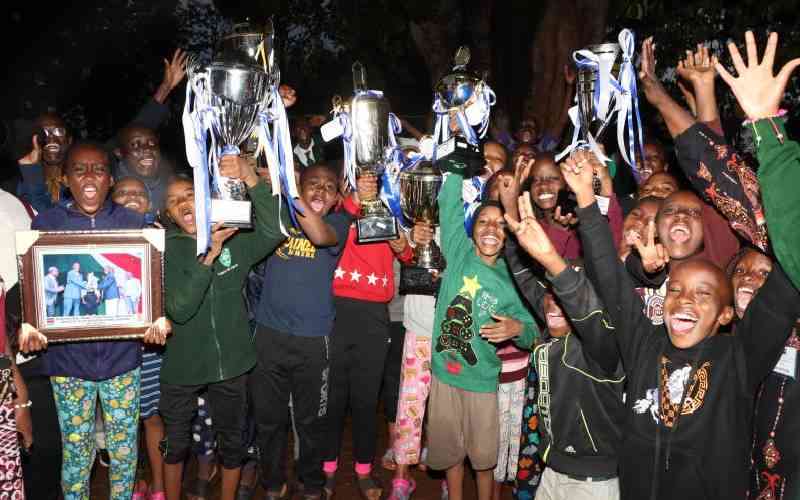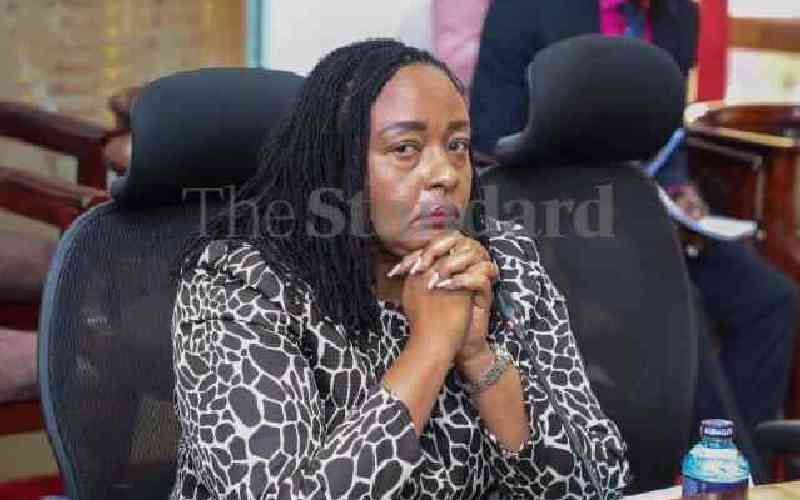By George Orido
Secondary school students hit the stage with performances focusing on peace, conflict, cohesion and social ills.
Ol Kejuado High was the toast of the day as Anthony Mwangi presented an oral narrative titled Lipa Mahari.
In this satire, the narrator explores dowry and its changing dynamics where today some parents demand outrageous payments beyond the reach of young men.
The narrator, whose style was novel to the festival because of his dance innuendos, talked about parents who demand huge sums of money in addition to a car, a house and business ventures before releasing their daughters.
"Siku hizi ni kulipa mahari ama ni biashara ya mahari "(Is it dowry payment or is it dowry trading?) asked the narrator as the audience broke into laughter.
Equally powerful was a choral verse Kitanzi Jongomeo from Light Academy, which delivered a persuasive message on the pressure parents put on their children to emerge top in school.
Kitanzi Jongomeo, written and directed by C J Junior, calls for a tripartite understanding and teamwork from students, parents and teachers to avoid suicide cases like those that followed immediate release of exam results.
Expensive coffins
To prove that performers truly understood the story, a couple of them shed tears as they pleaded with adults to be more compassionate and empathetic.
Former national champions Limuru Girls hit the stage with their French play Le Dossier, which focused on conflict resolution.
The Life and Times of Brother Macavity by Kaaga Girls was full of twists and turns. It was a story of a family that lives in deceit and finally finds out the truth at a cemetery where the patriarch exhumed bodies and stole expensive coffins and sold to unsuspecting bereaved families.
Written and directed by Munene Mumbi, the play focuses on people whose sources of wealth are questionable and warns that their days are numbered. At Mukumu Girls, primary schools continued with performances with Naikkara Primary School presenting a creative dance, Ole Polos Express.
The dance explores the trials Olomunyak, who escapes child labour and reinvents himself as an academic. Other schools that performed include Utawala Academy with Mulilo M’City, Kangundo AIC with The School Cow, Ngiya Girls with Awinja and Spring Board Academy with a verse, This Angel.
The Film category saw some exciting pieces including Kayole Primary School’s We are the Children.
Stay informed. Subscribe to our newsletter
Anchored on four choral performers, the film advocates for the protection of children against messages of violence and sexually explicit literature.
Compelling fashion
But the standards were set higher by Karima Girls, whose 30-minute short film, Flashback, had the ingredient of any commercially viable act.
With incredible camera angles and polished acting from the girls, the story of rape is told in a decent but compelling fashion.
0, written and directed by veteran Gilbert Lukalia, is an indication that this new category is here to stay and may be just the biggest thing in the festival in the near future.
Fete attracts school from Nigeria
Attendance and scheduled performance of a play this Saturday by Greensprings School from Lagos, Nigeria, is a vindication of how far the Kenya Drama Festival has had an impact.
The school, led by their teachers Patricia Ogo and Wenceslaus Masinde, arrived on Wednesday and were officially received by festival chairman Chokera Kahora.
Ms Ogo expressed satisfaction with the level of performance at the festival. "I am impressed with the creativity here and on Saturday, we will share with you our play – Twisted," she said.
Twisted interrogates values society has placed on beauty.
"The knowledge that elements of beauty are ingrained in our DNA has made women and men go out of their way in finding partners," she said.
 The Standard Group Plc is a
multi-media organization with investments in media platforms spanning newspaper
print operations, television, radio broadcasting, digital and online services. The
Standard Group is recognized as a leading multi-media house in Kenya with a key
influence in matters of national and international interest.
The Standard Group Plc is a
multi-media organization with investments in media platforms spanning newspaper
print operations, television, radio broadcasting, digital and online services. The
Standard Group is recognized as a leading multi-media house in Kenya with a key
influence in matters of national and international interest.
 The Standard Group Plc is a
multi-media organization with investments in media platforms spanning newspaper
print operations, television, radio broadcasting, digital and online services. The
Standard Group is recognized as a leading multi-media house in Kenya with a key
influence in matters of national and international interest.
The Standard Group Plc is a
multi-media organization with investments in media platforms spanning newspaper
print operations, television, radio broadcasting, digital and online services. The
Standard Group is recognized as a leading multi-media house in Kenya with a key
influence in matters of national and international interest.







